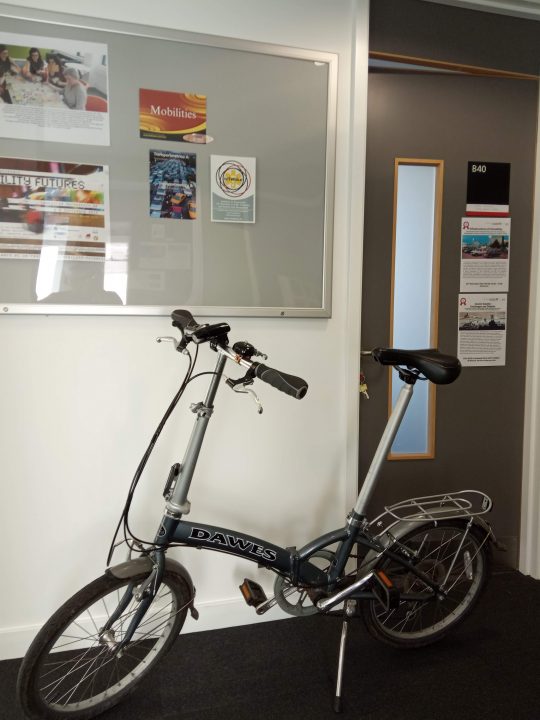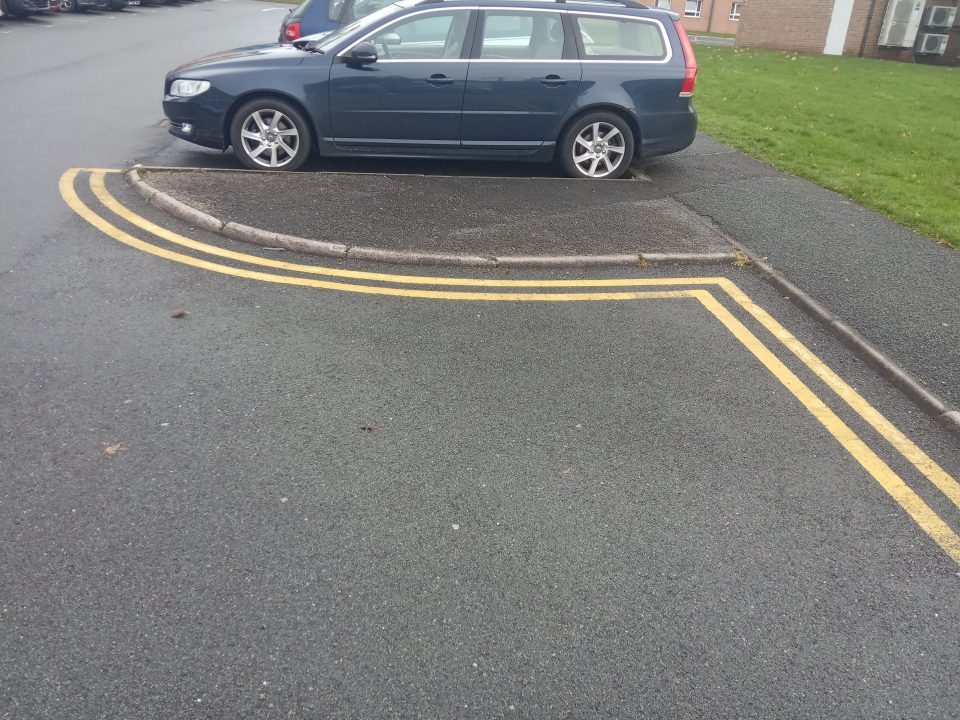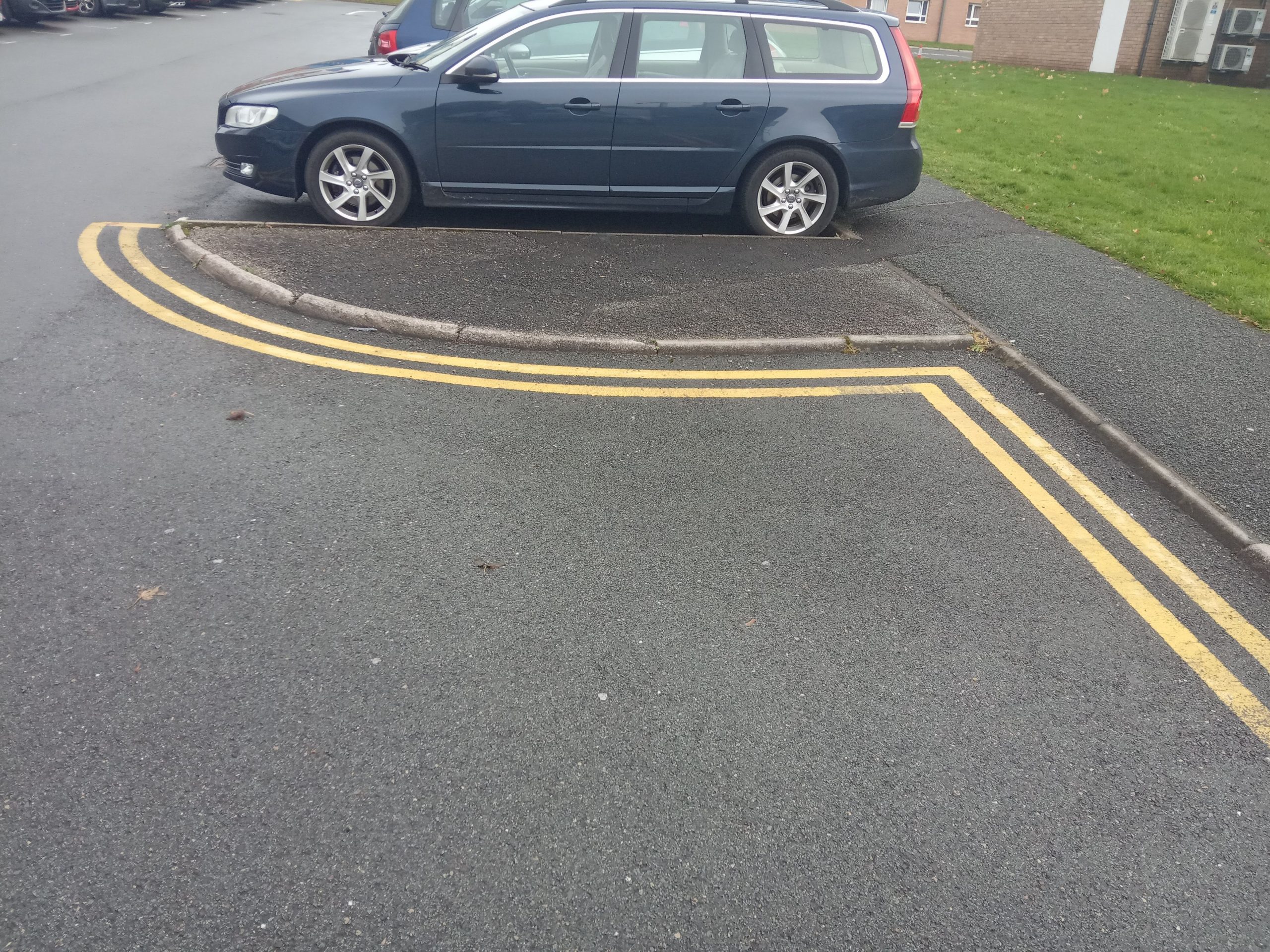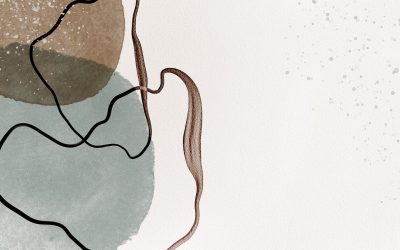I spent three weeks at CeMoRe in the autumn of 2019 for a research stay as part of my project about car parking in cities. I have been familiar with the excellent work done by researchers in the centre, so visiting it was a natural choice. Previously, I had a chance to visit Lancaster for the Mobile Utopia conference in November 2017. My idea for the research about parking actually crystallised during that conference, so I was particularly happy to return to the centre.
I have experienced the open and inclusive atmosphere of CeMoRe in the first days after my arrival, when I was lent a small folding bike by Nikki Pugh, so that I could commute between the campus and the place I was renting in the centre of Lancaster. The bike rides, first along the canal and then on the greenway to the campus were a special kind of experience of everyday commute and great times for thinking before and after a day in the office. They were also an opportunity to talk about mobilities with Nikki and Ragnhild, who was a visiting PhD student at that time, for instance about gender differences in accessing certain parts of the route from the campus after dark.

I felt very welcomed by the director of the centre Monika Büscher and other colleagues, who were all willing to have a chat about my project and our common research interests. This was much more than just “networking” – I genuinely learned a lot from informal talks over coffee or lunch. One opportunity for this was a “walking seminar”, during which a small group of us wandered slowly from the campus towards Ashton Memorial and simply shared experiences, ideas and future plans. This kind of moments seem to be rare in the academia that is constantly pressured for time. But CeMoRe is a place that still makes them happen.
The subjects of time, speeding up and slowdown came up again during my stay because of Hartmut Rosa’s talk as Annual John Urry Lecture organised by the Institute for Social Futures. I feel privileged to have been there not only for this event but also for a smaller seminar with Hartmut, during which issues of acceleration and immobility were discussed.
I also had a chance to contribute to the events of CeMoRe by giving a talk “Practices of car parking and the infrastructure of immobility” as part of the cyclical seminar series. It was a great occasion to discuss some findings of the project. It gave me ideas for publications and inspiration for taking the research in new directions. It also spurred me to think more about the connections between practices and infrastructures, which I develop in current writing.

Another important opportunity was related to teaching. I was invited by Monika to lead a seminar in her “Mobilities, Society and Change” module. As part of that, I engaged the participants in a small fieldwork exercise focusing on parking and immobility on campus.
The stay at CeMoRe was for me one of the highlights of rather busy 2019 – a period to reflect on research material, gather new thoughts and inspirations, make new friends and recharge before the next steps of the project.
Cover Image by Karol on the Lancaster University Campus, Autumn 2019
Karol Kurnicki is a WIRL-COFUND Fellow at the Institute of Advanced Study and the Centre for Interdisciplinary Methodologies, University of Warwick. His interests include im|mobilities, urban futures, digitalisation and infrastructures.
Email: kurnicki@gmail.com
Twitter: @karol_kurnicki




